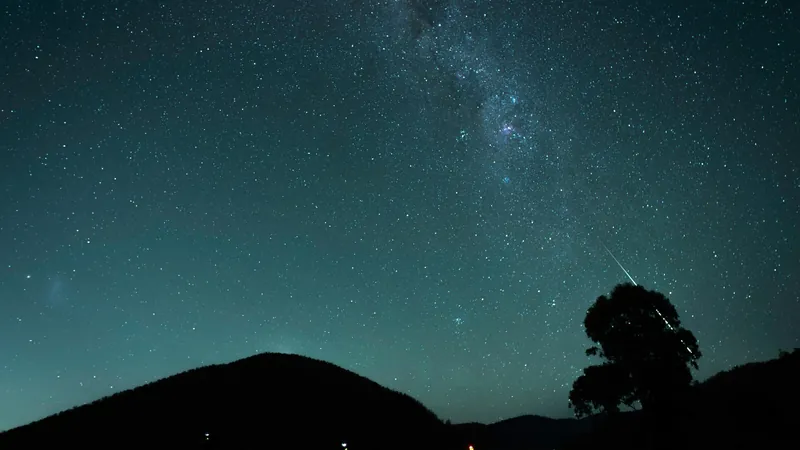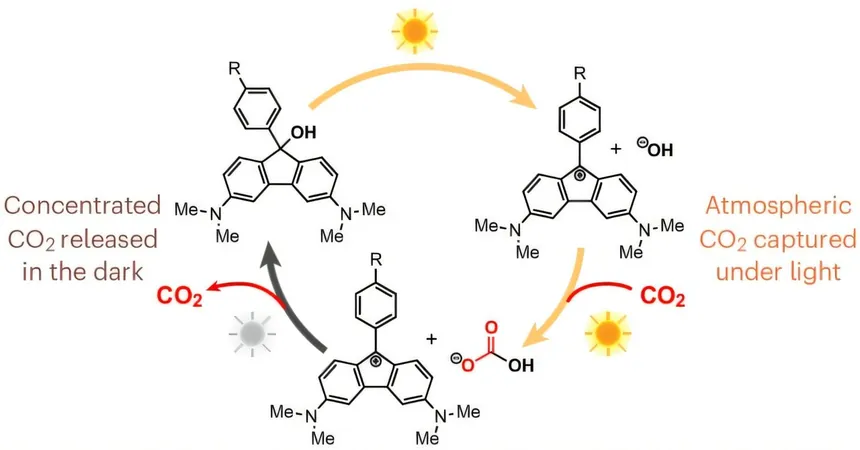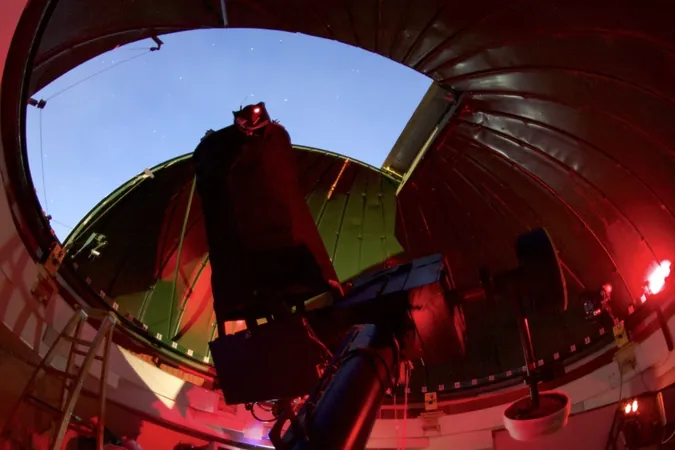
ESA Partners with Hungary to Revolutionize Space Weather Forecasting
2025-08-19
Author: Sophie
A Bold New Initiative to Decode Space Weather
In an exciting development for space science, the European Space Agency (ESA) is teaming up with Hungary's HUN-REN Wigner Research Centre for Physics to launch a groundbreaking research project focused on the enigmatic forces of space weather.
Introducing the SWIFT Project
Dubbed the SWIFT project—short for Solar Wind Impact on Turbulent Dynamics of the Terrestrial Magnetosphere-Ionosphere System—this initiative aims to uncover the intricate relationship between solar activities, particularly the solar wind, and our planet's magnetic environment.
A Global Effort with Cutting-Edge Data
Thanks to a grant from ESA, the research will utilize a wealth of data from various international space missions, including NASA's Magnetospheric Multiscale (MMS) and Themis missions, along with ESA's Cluster and Swarm missions.
Exploring the Unknown
Hungarian scientists are set to delve deep into the physical mechanisms that channel solar energy into Earth's near-space surroundings. Their research will focus on the connections between interplanetary magnetic fields and geomagnetic lines, as well as the turbulent plasma and electric currents that arise in near-Earth space.
Real-World Implications for Technology and Safety
The implications of this research extend far beyond academia. Understanding space weather more accurately could lead to better forecasting, helping to shield vital infrastructure from solar storms. Historically, events like the Carrington Event of the 19th century wreaked havoc on telegraph systems. Today, similar phenomena could cripple power grids, pipelines, GNSS navigation systems, and satellites—potentially costing billions.
A Leap Forward in Science and Safety
The findings from the SWIFT project are expected not only to enhance forecasts of space weather but also contribute valuable insights to fields such as astrophysics, fluid dynamics, and even fusion reactor development. As we venture deeper into the cosmos, this collaborative effort signifies a crucial step towards safeguarding our planet while expanding the frontiers of scientific knowledge.









 Brasil (PT)
Brasil (PT)
 Canada (EN)
Canada (EN)
 Chile (ES)
Chile (ES)
 Česko (CS)
Česko (CS)
 대한민국 (KO)
대한민국 (KO)
 España (ES)
España (ES)
 France (FR)
France (FR)
 Hong Kong (EN)
Hong Kong (EN)
 Italia (IT)
Italia (IT)
 日本 (JA)
日本 (JA)
 Magyarország (HU)
Magyarország (HU)
 Norge (NO)
Norge (NO)
 Polska (PL)
Polska (PL)
 Schweiz (DE)
Schweiz (DE)
 Singapore (EN)
Singapore (EN)
 Sverige (SV)
Sverige (SV)
 Suomi (FI)
Suomi (FI)
 Türkiye (TR)
Türkiye (TR)
 الإمارات العربية المتحدة (AR)
الإمارات العربية المتحدة (AR)